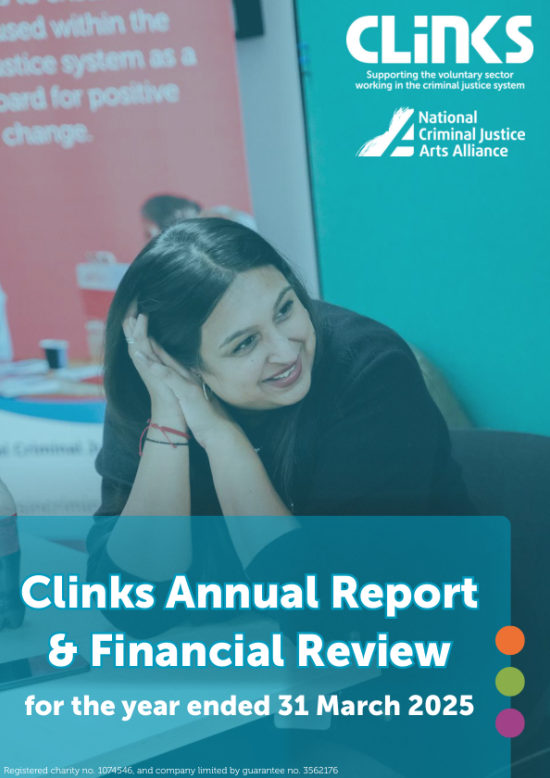On Friday morning, the UK woke up to a new government. Following a swing of about 11% from the Conservatives to Labour in the election, giving the Labour party a majority of 174 seats, the government will be led by a different party for the first time in 14 years. Whilst many aspects of their manifesto did not contain lots of detail, a change of government and new ministers will present a renewed chance for the sector to influence change.
Below, we highlight some key asks and recommendations for a new government, drawing on our 2023 State of the Sector research.
Investing in prevention and rehabilitation
As part of focus groups and interviews carried out for our 2023 State of the Sector research, we asked voluntary organisations and charitable trusts and foundations what they would like to tell a post-election government, and the support they would like to see from it.
The first key theme that arose was that a new government should invest in preventing offending, and support that helps people to rebuild their lives after serving a prison sentence. For instance, one large organisation said they’d like to see:
‘greater investment in work to prevent people from becoming part of the criminal justice system in the first place rather than dealing with the consequences once they’ve been prosecuted.’
A funder highlighted the importance of early interventions and support for people upon their release from prison:
‘Invest in early interventions or even that crucial 72 hours on release. That is often where we hear stories of people, nowhere to go, released on a Friday afternoon, no housing sorted, £76 in their pockets, and you expect someone to carry on with their life… It’s just setting people up to fail.’
Data from the Ministry of Justice showed that, in 2023, about 70% of people who received a criminal sanction had at least one previous conviction or caution. Moreover, Ministry of Justice research from 2019 found the estimated social and economic costs of reoffending were more than £18 billion. Consequently, there is huge social and economic value to be had by investing in rehabilitation. Clinks thinks services should be joined up to give people the best chance of accessing the help they need to desist from crime, or avoid offending in the first place, and realise their potential.
It is also vital to prevent offending in the first place, both for people who have never been in contact with the justice system, as well as people with previous convictions. To deliver the most effective services, Clinks thinks they should be person-centred, involving the person using the service as an equal partner in planning and focussing on their individual needs.
Leaning on the expertise of voluntary sector organisations
The second call from State of the Sector focus groups and interviews was for the government to utilise the vast knowledge and expertise of the voluntary sector. Organisations wanted the new government to:
‘...see the real value the voluntary sector brings. We plug a lot of gaps that there shouldn’t need to be and so opening doors to be able to work with us and actually invest in the support that we provide would be transformative.’
A funder highlighted the sector’s capability, despite limited resources:
‘They [voluntary organisations] are doing incredible things on a shoestring and that needs to be properly funded and they [the government] need to not put so much focus on value for money and more focus on holistic intensive long-term support that actually makes meaningful change in people’s lives.’
Clinks thinks the voice of the voluntary sector needs to be sought out and heard, without fear of repercussions. The new government should draw on voluntary sector expertise when developing policy and services, and commit resources to improving partnerships with the voluntary sector, including national engagement mechanisms, and the recruitment of voluntary sector co-ordinators in every prison.
Empowering local organisations to deliver in their communities
The third theme in our focus groups with the sector and interviews with charitable trusts and foundations was that local organisations were well placed to deliver in their own communities, and a desire for the new government to recognise this. There was concern that national organisations might come into a community with less knowledge of the local context, and so local organisations should be preferred. Moreover, some suggested that more decision making and commissioning should be done locally.
A large organisation said:
‘The idea that everything has to be modelled in Westminster [is wrong] because generally speaking what happens or works in London does not work [elsewhere in the country]… there’s something about localism and looking at local solutions… the voluntary sector have got a lot of those solutions.’
Support needed from the new government
Alongside these asks, the voluntary sector needs support from the new government to be able to deliver the high-quality services that help people to transform their lives. In our focus groups, the need for funding and commissioning processes to be reformed was a consistent theme. Underlying this, there was a desire to reduce bureaucracy and the demands placed on organisations applying for government funding, to have longer-term contracts and grants especially for organisations with a proven track record of delivery, and to see more funding available to the sector.
The voluntary sector in criminal justice is providing vital public services, funded in large part by government; 39% of organisations who responded to our survey said their largest source of income was government/statutory contracts. As one of the largest funders in the sector, it is essential that the new government improve funding processes, to ensure that the vital public services delivered by the voluntary sector can be delivered effectively. Read more about Clinks’ recommendations for change to the government, and charitable trusts and foundations, in our State of the Sector report.
Clinks Chief Executive, Anne Fox, recently appeared on the Secret Life of Prisons podcast, from the Prison Radio Association. In this episode, Anne sets out five big asks for the next government, drawing on Clinks’ research, as well as conversations and engagement with Clinks members. In this Anne, on behalf of the sector, calls for:
-
An end to sending people to prison who should not be there
-
Giving people effective support when they are leaving prison and preparing for that release day
-
An end to sending people to prison for too long
-
More to be done to help the children of people in prison
-
The new government to lean on the expertise of the voluntary sector, and to pay for its expertise.
What next?
As of time of publishing, Shabana Mahmood has been appointed as the Lord Chancellor and Secretary of State for Justice. In addition, James Timpson has been appointed as a Minister of State with responsibility for prisons, probation, and parole, and Heidi Alexander as a Minister of State in the Department. More appointments to the Ministry of Justice are anticipated very shortly. As appointments continue to be made, and responsibilities of ministers finalised, Clinks will be contacting new justice ministers to highlight the skill, expertise, and knowledge of the voluntary sector, and how this can be utilised to help people transform their lives.
Moreover, Clinks will continue working with the sector, acting as the link between organisations' experiences on the ground and the government, and influencing on behalf of the sector and the people they support. Clinks will be writing to the newly appointed Secretary of State with responsibility for criminal justice to highlight the important work of the sector, and the need for the government to work closely with them to achieve the best outcomes for people in contact with the system.
For more on Labour’s manifesto, read our manifesto round-up blog.
Image credit: NCJAA presents Inspire 2023 – Louise Mackey
What's new
Blogs
Anne Fox CEO of Clinks to stand down after a decade of service
Latest on X
The role is for a leader from an organisation focused on racially minoritised people, with expertise in service delivery, policy, advocacy, or related areas in criminal justice. Racial disparities are present at every CJS stage. This role ensures these voices are central in shaping policy to help address and eradicate them. Apply by Mon 18 Nov, 10am. More info: https://www.clinks.org/voluntary-community-sector/vacancies/15566 #CriminalJustice #RR3 #RacialEquity

